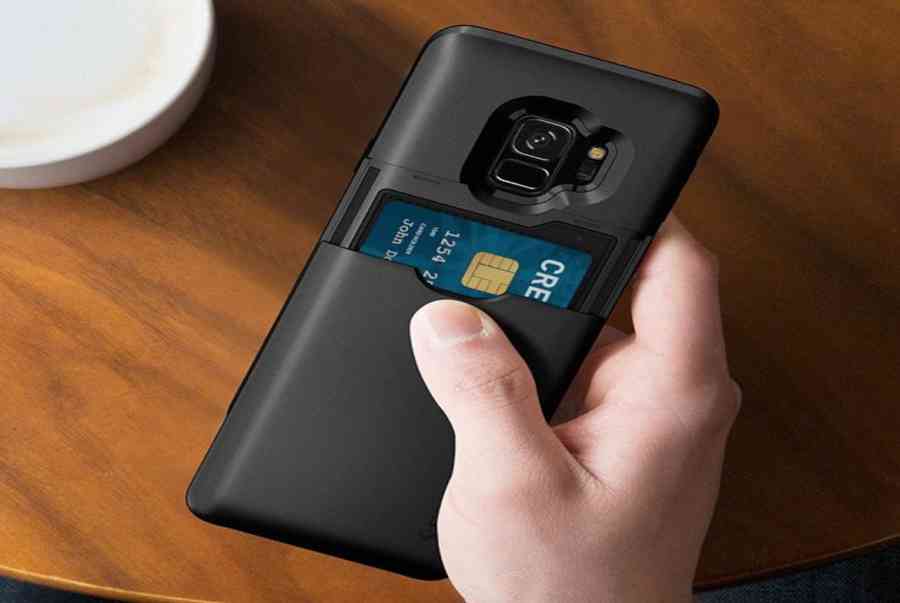Product Review
-
 04/26/2022
04/26/2022How Safe Is Indoor Plumbing?
-

-

-
 01/13/2022
01/13/2022Does Queenslandmax work or is it a scam?
-

-
 01/11/2022
01/11/2022Chicwish Review: Merry Christmas to me!
-

-
 05/01/2022
05/01/2022Samsung Galaxy S9 Cardholder Cases
-
 05/01/2022
05/01/2022Samsung A10 Cases
-

02/10/2024
Top 9 Most Profitable Blog Niches for 2024: Your Launchpad to Success
Choosing the right blogging niche is critical for building a thriving online presence. While “profitability” can be subjective, some niches…
02/01/2024
Celestial Harmony: Star Earrings Intertwined in Chic Chains
In the realm of fashion, accessories are the celestial stars that illuminate our attire. Among them, star earrings hold a…
01/18/2024
Mastering the Seas with 8721 g-G Mega Gloss 1-Part Marine Topside Polyurethane Enamel
Tips and Advice for Using 8721 g-G Mega Gloss 1-Part Marine Topside Polyurethane Enamel Marine enthusiasts, both seasoned professionals and…
01/18/2024
How to Grow Your Social Media Presence Organically in 2024
In today’s digital age, possessing a robust social media presence is no longer a luxury; it’s a necessity. Whether you’re…
01/11/2024
44.904.376 Luiz Augusto Campos Engenharia Senges A Name Synonymous with Excellence and Trust
For years, the name Luiz Augusto Campos has been synonymous with engineering excellence and trust in the industry. With over…
01/07/2024
Introduction to ATK Hairy Models
ATK Hairy Models, also known as Amateur Teen Kingdom Hairy Models, have been a staple in the adult industry since…
12/18/2023
Dental Implants in New York – Improving Your Dental Health
Dental implants are the replacement of tooth roots. Implants provide a strong foundation for fixed or removable bridges or dentures.…
11/12/2023
Erek Erek Terlengkap: Unveiling the Secrets of Indonesian Dream Interpretation
Welcome to the fascinating world of “Erek Erek Terlengkap,” a rich tapestry of dreams and symbols deeply rooted in Indonesian…
07/28/2022
Biggest Social Media Platforms as Per User Base
The web is the sacred lifeline of industrial development as every one of the cutting-edge wonders that the world has…
07/15/2022
AniMixPlay Review – Is AniMixPlay Safe?
AniMixPlay is a website where you can watch anime for free. But is it safe? Is it licensed for anything?…
07/07/2022
The Benefits of Green Buildings
The term green building can be used to describe both the structure of a building and the processes that go…
06/23/2022
Pacman 30th Anniversary: New Google Doodle
A modified version of the Google doodle honoring Pacman 30th anniversary has been created. This wistful throwback game is an…
Uncategorized
02/10/2022
My Orbi Satellite is Pulsing Blue. How Do I Fix It?
An Orbi mesh WiFi system is a class of its own that delivers more WiFi coverage and better performance than…
Health
01/27/2022
Selank Peptide: Everything You Should Know
Developed in Russia, Selank is a chemical with nootropic and anxiolytic effects. Synthetic Tuftsin analog is also known as TP-7.…
Business
12/31/2021
How to Elevate Your Brand With Custom Pizza Boxes
Pizza might be known as Italian food, but gradually it is becoming the favorite food of people from all over…
Cryptocurrency
12/28/2021
Bitcoin Scam: How To Avoid Them?
As you become more involved with the new digital monetary systems known as cryptocurrencies, you quickly realise that there is…
Home and Decor
01/14/2022
Types of Vacuum Cleaner Available in India
Vacuum cleaners have become one of the most essential devices used at homes, offices, schools, universities, etc. The device uses…
Reviews
05/01/2022
Samsung Galaxy S9 Cardholder Cases
The Samsung Galaxy S9 Cardholder Cases by Dailylux are beautiful ones that are almost as stylish as a wallet. It…
Home and Decor
12/03/2021
Top 10 Useful Sources About Poster Colour Painting
Poster Paint Tips and Tricks – My Reeves – English Poster Color Painting is the perfect paint for anyone. The…
Health
01/06/2022
What Characteristics Of Medicine Packaging Should Have? 7 Must Added Elements
Medicines are sensitive to various environmental conditions. They need extra care during their shipping and storage. You also have to…
Uncategorized
12/16/2021
Top 10 Useful Sources Of Uniiswap
Uniiswap Complete review: Is a Scam or Legit? Uniiswap works by captivating liquidity suppliers to make security and to make…
Health
12/31/2021
Activities to Keep Your Mind Stress Free
Have you been feeling frazzled lately? Are you in need of pressure relievers? If you need calm, examine directly to…
Business
01/12/2022
Attract Customers During Restaurant Slowdown
Almost all restaurants witness a summer season restaurant slowdown. In the summer seasons. As the temperature soars, people prefer to…
Business
12/31/2021
Why Retail Businesses Use Custom Rigid Boxes for Brand Promotion
In the retail world, signs are perhaps one of the most powerful marketing tools available. Whether you’re an established brand…
Home and Decor
09/25/2021
Choosing a Diamond Home Improvement Contractor
About Diamond Home Improvement What is Diamond Home Improvement? The question may seem like the sort of random trivia you…
Fashion
04/12/2022
Radio personality Rachel Steele adopts more mature fashion sensibility: Fashion Flash
Reading: Radio personality Rachel Steele adopts more mature fashion sensibility: Fashion Flash Rachel Steele, 35, Mentor Music director and afternoon-drive…
Uncategorized
12/29/2021
5 THOUGHTFUL VALENTINE’S DAY GIFTS FOR FITNESS JUNKIES
Fitness addicts are the ones who dedicate an ample amount of their time doing multiple sets of workouts and striving…
Uncategorized
12/07/2021
Top 10 Useful Sources About Prodeg
Prodeg 2021 – American online marketing, Data and insights solutions PRODEG is a company that provides a facility for management…
Entertainment
01/07/2024
Introduction to ATK Hairy Models
ATK Hairy Models, also known as Amateur Teen Kingdom Hairy Models, have been a staple in the adult industry since…
Uncategorized
01/03/2022
Different types of limousines and which suits you best
When we think of hiring a limo for special occasions like proms at high schools or wedding is the first…










































